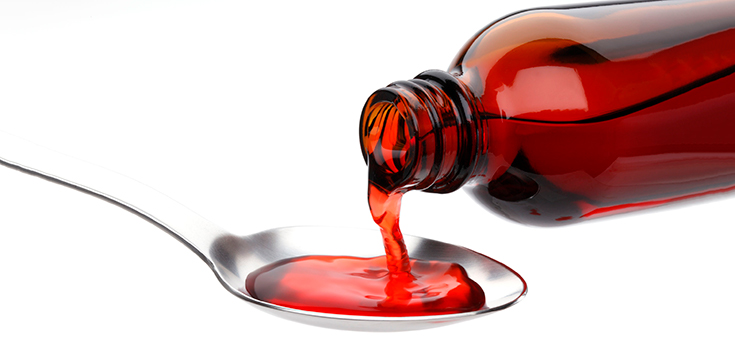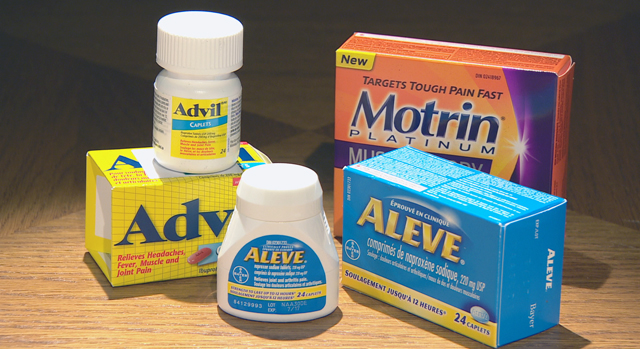Prominent Group of Pediatricians Warn: Codeine is not Safe for Children
Prominent Group of Pediatricians Warn: Codeine is not Safe for Children
The drug can cause serious side effects in kids
Over the years, studies have been piling up showing that codeine doesn’t always work , and that it can cause serious and potentially fatal side effects , yet doctors have continued to prescribe it for decades, the American Academy of Pediatrics (AAP) said.
A leading group of pediatricians said in a statementpublished September 19 that codeine is not safe for children and should not be used to relieve pain or coughs. [1]
The guidance nearly mirrors a January 2016 Food and Drug Administration (FDA) warning that codeine should not be given to childrenand most teens.
Said Dr. Joseph Tobias of Ohio State University and Nationwide Children’s Hospital in Columbus:
“We firmly believe that there is never a reason to use codeine.”
The Dark Side of Codeine
Codeine, a narcotic, is found in everything from pain relievers to cough medicine, to antidiarrheal medication. The drug works by blocking responses to pain, suppressing cough reflex, and causing drowsiness. [2]
Codeine doesn’t always work as a pain reliever because the body must convert it into morphine , and some people lack the gene that makes that conversion happen.
Additionally, not everyone’s liver processes codeine at the same rate. This means that people whose bodies break down the drug quickly may need abnormally high or more frequent doses .
The opposite is also true; people who process codeine more slowly may need a lower-than-normal dose.
The Food and Drug Administration (FDA) required a black-box warning on codeine medications in 2013 because some children who process the drug quickly have had trouble breathing or stopped breathing and died when they were given codeine after surgery to remove their tonsils and adenoids. [1]
For the most part, the codeine-related, life-threatening events and deaths occurred in relatively young children who received a combination of codeine and acetaminophen after surgery.
In July 2015, the FDA cautioned against prescribing codeine as a cough suppressant to children younger than 18 years. [3]
The American Academy of Pediatrics has warned that some kids with undiagnosed nighttime breathing problems may also have respiratory problems after taking codeine, and obesity increases that risk.
In 2011, the World Health Organization (WHO) deleted codeine from its list of essential medications due to concerns over the drug’s safety and efficacy.
Both the European Medicines Agency (EMA) and Health Canada have recommended restrictions on the use of codeine in children.
Less-than-Desirable Alternatives for Pain Relief
Clearly, pain medication is needed (or at least realllllly wanted) after surgery. However, no pain reliever is risk-free.
A number of children’s hospitals across the United States have already advised doctors to stop prescribing codeine, according to Dr. Constance Houck, a researcher at Boston Children’s Hospital and an author of the group’s statement. She said:
“This statement is meant to insure that all pediatricians, pediatric subspecialists and pediatric surgical specialists (including dentists) are aware of the concerns with codeine and recognize that, for the safety of their patients, they should switch to another oral opioid.
Opioids should never be prescribed for cough and there are other oral opioids such as oxycodone and hydrocodone that are available for use in children and these should be prescribed instead.”
The AAP describes in its report potential alternatives to codeine for pain relief in kids, including oxycodone, hydrocodone, oral morphine, and tramadol . All of these drugs are opioids, and none of them are particularly savory alternatives.
This has led researchers and clinicians to take another look at nonsteroidal anti-inflammatory drugs (NSAIDs) such as ibuprofen and ketorolac. NSAID drugs come with their own risks, too, including potential gastrointestinal bleeding and stomach ulcers.
NSAIDs are generally not, however, addictive or habit-forming.
“The answer may not lie in using more medication or different medications but merely using more effectively other options that are currently available.
The evolving information about the genetic variability in drug metabolism will yield important insights to guide physicians in the safe and effective treatment of their patients. Additional clinical research must extend the understanding of the risks and benefits of both opioid and nonopioid alternatives for orally administered, effective agents for acute pain.”
Dr. Charles Cote, a Boston anesthesiologist and co-author of the report, put it bluntly:
“Maybe a little pain is better than the alternative.” [4]
There are some good alternatives for treating cough, on the other hand. Coffee and honey has been shown to soothe a bothersome hack(if you don’t mind your kids being a little, er, jumpy), and pineapple juice has been found to be even more effective than cough syrup.
| About Julie Fidler: | |
| Julie Fidler is a freelance writer, legal blogger, and the author of Adventures in Holy Matrimony: For Better or the Absolute Worst. She lives in Pennsylvania with her husband and two ridiculously spoiled cats. She occasionally pontificates onher blog. | |
Other Popular Stories:


Post a Comment